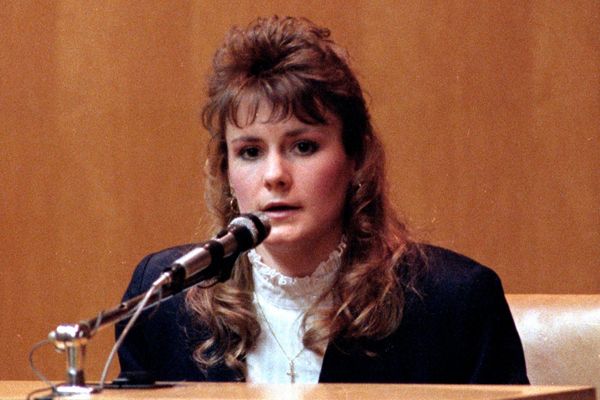
History may show the US-led invasion of Iraq was based on false information but former defence minister Robert Hill insists federal cabinet was right to support the war.
Classified documents released by the National Archives after a 20-year freeze reveal deliberations over Australia's involvement in the conflict.
Mr Hill was quizzed about the invasion while in Canberra for their unveiling.
"Do I still think it was the right decision? On the evidence that was available to me at the time, I believe it was the right decision," he told reporters.

Most government deliberations on the war will remain secret because it was discussed by the National Security Committee.
Cabinet was briefed by then prime minister John Howard about the looming military action on March 18, 2003, one day before the US-led invasion began.
The US claimed it was aimed at disarming weapons of mass destruction, ending Saddam Hussein's support for terrorism and freeing Iraqi people.
Mr Howard told cabinet he had extensive discussions with US president George Bush and UK prime minister Tony Blair about a use of force in Iraq, should the country fail to disarm weapons of mass destruction.
Military intelligence following the 9/11 attacks and ongoing war on terror suggested Iraq leader Saddam Hussein had such weapons but in later years would prove to be untrue.
But at the time, cabinet was warned of a "real and unacceptable threat to international peace and security", with Australia at risk should weapons of mass destruction fall into the hands of terrorists.

Cabinet discussed the effect the war would have on Australia's immigration system, with documents noting the conflict would lead to a "probable shortfall" in humanitarian visas.
In one submission, then-immigration minister Philip Ruddock said government arrangements in Iraq would allow for the gradual return of Iraqi asylum seekers who sought protection in Australia following the outbreak of the conflict.
The decision to commit to Iraq led to some of the largest protests in Australia since the Vietnam War, with hundreds of thousands of people taking to streets.
On the same day as cabinet met to discuss committing troops to Iraq, protesters painted "No War" on the sails of the Sydney Opera House.

Despite the large demonstrations, Mr Hill said the public mood at the time was mainly supportive and the protests did not sway decisions.
"The view of cabinet was the majority of Australians thought the action being taken by the Australian government was warranted," he said.
The documents revealed Mr Howard briefed cabinet two weeks after the Iraq invasion on the military operation and progress of the ADF.
While the early stages of the war ended in May 2003, Australian forces would remain active in Iraq for another six years.
Acting Greens leader Nick McKim called for the full release of National Security Committee and cabinet documents in relation to the conflict.
"Significant questions remain unanswered about exactly when John Howard promised George Bush he would take Australia to war in Iraq, how that stacks up with the timeline of flawed intelligence," Senator McKim said in a statement on Monday.
"Committing Australia to war in Iraq was one of the most consequential decisions an Australian government has ever made, yet the secrecy which has shrouded that fateful decision continues to this day."
More details on the matter could be released following the Department of the Prime Minister and Cabinet's admission that a "small number" of cabinet documents failed to be transferred to the archives due to "apparent administrative oversights by the department, the archives and security agencies".
In a statement ahead of the scheduled drop of 20-year-old cabinet papers on January 1, the agency attributed the botched transfer to COVID-19 pandemic disruptions in 2020.
The documents have since been found and Dennis Richardson, a former head of the Australian Security Intelligence Organisation and Department of Defence, will look into the error and report by end of the month.







